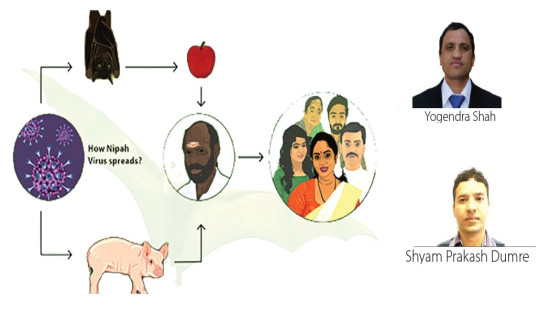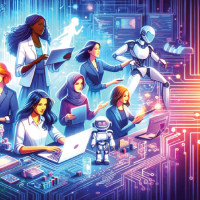- Saturday, 7 February 2026
AI-generated models could bring more diversity to the fashion industry
Chicago, Apr. 16: London-based model Alexsandrah has a twin, but not in the way you'd expect: Her counterpart is made of pixels instead of flesh and blood.
The virtual twin was generated by artificial intelligence and has already appeared as a stand-in for the real-life Alexsandrah in a photo shoot. Alexsandrah, who goes by her first name professionally, in turn receives credit and compensation whenever the AI version of herself gets used — just like a human model.
Alexsandrah says she and her alter-ego mirror each other "even down to the baby hairs." And it is yet another example of how AI is transforming creative industries — and the way humans may or may not be compensated.
Proponents say the growing use of AI in fashion modeling showcases diversity in all shapes and sizes, allowing consumers to make more tailored purchase decisions that in turn reduces fashion waste from product returns. And digital modeling saves money for companies and creates opportunities for people who want to work with the technology.
But critics raise concerns that digital models may push human models — and other professionals like makeup artists and photographers — out of a job. Unsuspecting consumers could also be fooled into thinking AI models are real, and companies could claim credit for fulfilling diversity commitments without employing actual humans.
"Fashion is exclusive, with limited opportunities for people of color to break in," said Sara Ziff, a former fashion model and founder of the Model Alliance, a nonprofit aiming to advance workers' rights in the fashion industry. "I think the use of AI to distort racial representation and marginalize actual models of color reveals this troubling gap between the industry's declared intentions and their real actions."
Women of color in particular have long faced higher barriers to entry in modeling and AI could upend some of the gains they've made. Data suggests that women are more likely to work in occupations in which the technology could be applied, and are more at risk of displacement than men.
In March 2023, iconic denim brand Levi Strauss & Co. announced that it would be testing AI-generated models produced by Amsterdam-based company Lalaland.ai to add a wider range of body types and underrepresented demographics on its website. But after receiving widespread backlash, Levi clarified that it was not pulling back on its plans for live photo shoots, the use of live models or its commitment to working with diverse models.
"We do not see this (AI) pilot as a means to advance diversity or as a substitute for the real action that must be taken to deliver on our diversity, equity and inclusion goals and it should not have been portrayed as such," Levi said in its statement at the time.
The company last month said that it has no plans to scale the AI program.
The Associated Press reached out to several other retailers to ask whether they use AI fashion models. Target, Kohl's and fast-fashion giant Shein declined to comment; Temu did not respond to a request for comment.
Meanwhile, spokespeople for Nieman Marcus, H&M, Walmart and Macy's said their respective companies do not use AI models, although Walmart clarified that "suppliers may have a different approach to photography they provide for their products but we don't have that information." (AP)









-original-thumb.jpg)






